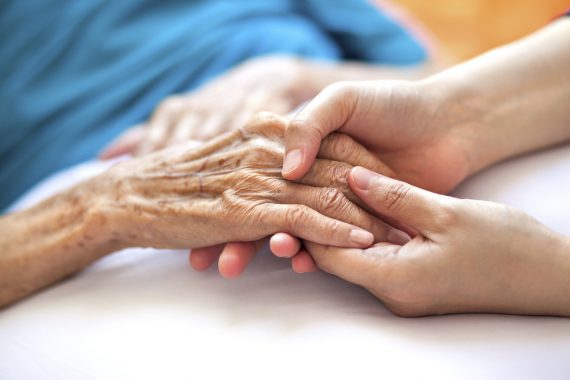GPs to support care home residents with Covid-19 ‘remotely and face to face’

GPs will be expected to monitor care home patients with Covid-19 face to face as well as remotely under the new support service, the Government has said.
In papers published on Friday, the Department of Health and Social Care described primary care and community health services as ‘key’ to ensuring care homes have ‘the clinical support they need’ during the pandemic.
Adding details about the new care home support service – under which GPs are asked to carry out virtual weekly ward rounds and all care homes should have a named clinical lead – the Government said ‘care home residents with suspected or confirmed Covid-19’ should receive support ‘through remote monitoring (and face-to-face assessment where clinically appropriate)’.
It added that this should be provided ‘by a multidisciplinary team where practically possible (including those for whom monitoring is needed following discharge from either an acute or step-down bed)’.
In order to enable remote monitoring of residents, the Government said it would provide care homes with ‘key medical equipment such as pulse oximeters’ to enable remote monitoring of Covid-19 patients within care homes’.
It also said community health improvement teams are ‘working with primary care and NHSX to roll out video consultations within care homes’.
Health secretary Matt Hancock said: ‘The NHS will ensure that each care home has a named clinical contact to provide better access to clinical advice through weekly check-ins to review their patients, and offer direct support for staff with use of equipment and medication.’
As part of the Government’s bid to support care homes, following thousands of deaths to Covid-19, it has also announced a ringfenced £600m ‘infection control’ fund that will be paid to local authorities.
The DHSC said this could be used for example for extra staff, as it has advised care homes to stop sharing staff across multiple locations.
It also said local authorities must review all their care homes daily to ensure they have sufficient staff and PPE throughout the pandemic.
GPs have been told they might face regulation unless care home ‘coverage’ – including appointing a clinical lead and setting up weekly virtual ward rounds – is achieved across the country.
Meanwhile, NHS England confirmed that practices would receive funding for ‘additional’ capacity needed to carry out work in care homes as part of the Covid support fund and separate to DES funding.
It follows confusion over whether the service was being brought forward as part of the network DES and concern over the role of clinical lead.
The care home Covid support service
The NHS has committed that all care homes will be supported via primary and community support, by 15 May.
This will provide:
- timely access to clinical advice for care home staff and residents, including a named clinical lead for every care home and weekly check-ins;
- proactive support for people living in care homes, including through personalised care and support planning as appropriate;
- support for care home residents with suspected or confirmed COVID-19 through remote monitoring (and face-to-face assessment where clinically appropriate) by a multidisciplinary team where practically possible (including those for whom monitoring is needed following discharge from either an acute or step-down bed); and;
- sensitive and collaborative decisions around hospital admissions for care home residents if they are likely to benefit.
Source: Department of Health and Social Care
Pulse October survey
Take our July 2025 survey to potentially win £1.000 worth of tokens

Visit Pulse Reference for details on 140 symptoms, including easily searchable symptoms and categories, offering you a free platform to check symptoms and receive potential diagnoses during consultations.









